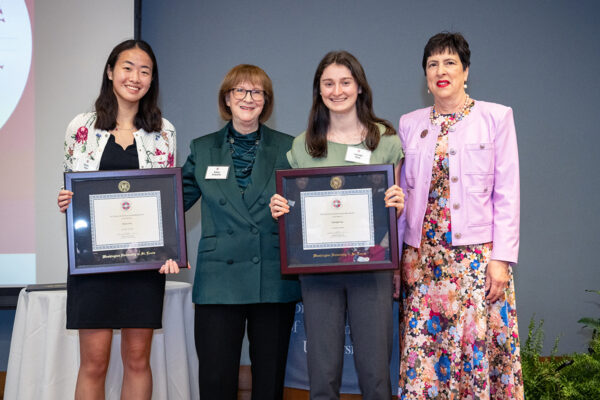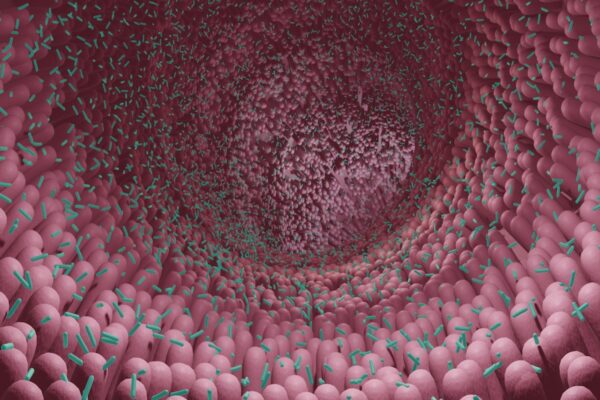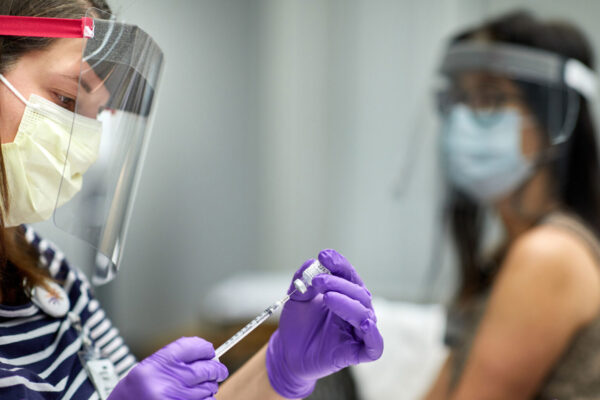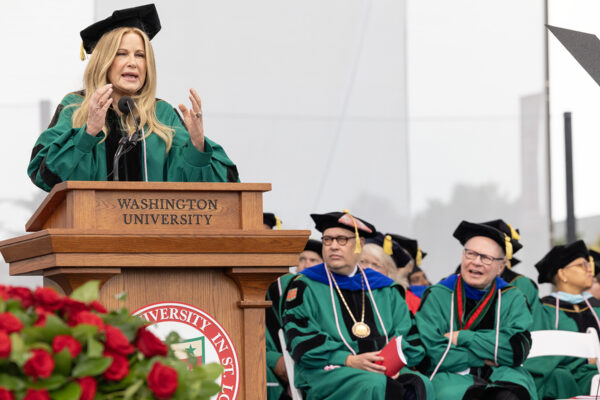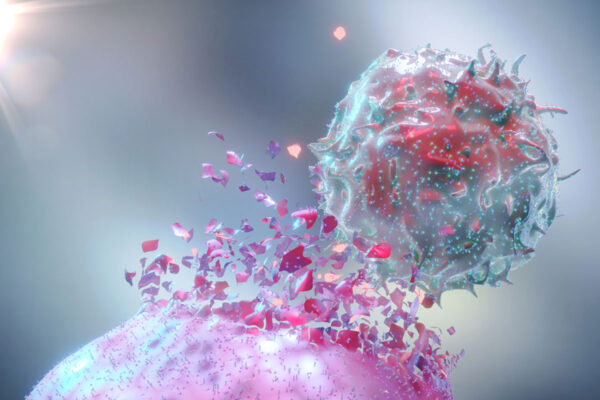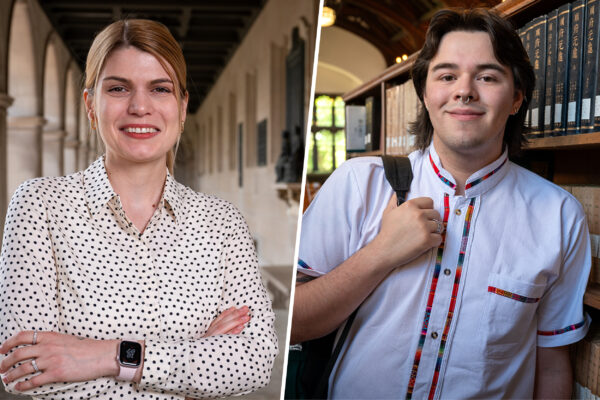Women’s Society honors students with awards, scholarships
The Women’s Society of Washington University presented the Harriet K. Switzer Leadership Award and the Elizabeth Gray Danforth Scholarship to three exceptional students during its annual membership meeting this spring.
Gut bacteria boost immune response to fight tumors
Researchers at Washington University School of Medicine in St. Louis have found that a strain of gut bacteria can boost immune responses and enhance cancer immunotherapy to fight sarcoma tumors in mice.
Chemo for glioblastoma enhanced by tapping into cell’s daily rhythms
A study from biologists and clinicians at Washington University in St. Louis reports that glioblastoma cells have built-in circadian rhythms that create better times of day for treatment.
Repeat COVID-19 vaccinations elicit antibodies that neutralize variants, other viruses
A study by researchers at Washington University School of Medicine in St. Louis has found that repeat vaccination with updated versions of the COVID-19 vaccine promotes the development of antibodies that neutralize a wide range of variants of the virus that causes COVID-19, as well as related coronaviruses.
Quantum physics may help lasers see through fog, aid in communications
An engineer in the McKelvey School of Engineering at Washington University is implementing quantum technology to develop ways that lasers can operate effectively in challenging environments.
Coolidge shares message of self-acceptance at WashU Commencement
In a speech slyly funny, painfully raw and delightfully circuitous, award-winning actor Jennifer Coolidge shared her own journey to radical self-love with the 3,400 graduates of the WashU Class of 2024.
$5 million grant supports innovative immunotherapies against blood cancers
Researchers at the School of Medicine have received a $5 million grant from the Leukemia & Lymphoma Society to support research aimed at developing new immunotherapies for different types of blood-based cancers.
Brown School students engage with St. Louis neighborhoods
Brown School students in the “Community Development Practice” class engaged with community partners and contributed to projects in pedestrian safety, neighborhood planning and public safety to improve neighborhoods in south St. Louis.
Commencement speakers reflect on finding their purpose
Alejandro Ramirez arrived at WashU as a pre-med student, but will leave with a Fulbright Scholarship to conduct research in Brazil. Patricia Maurer will graduate with a PhD in Germanic languages and literatures but wants to support students academically and professionally as a higher education administrator. Both will reflect on their experiences as student speakers at the 163rd Commencement ceremony.
Five to receive honorary degrees at WashU’s 163rd Commencement
Washington University in St. Louis will award five honorary degrees during its 163rd Commencement Monday, May 13. Among the recipients is Jennifer Coolidge, an award-winning actor known for her numerous iconic roles in film and on television, who will deliver the Commencement address.
View More Stories
